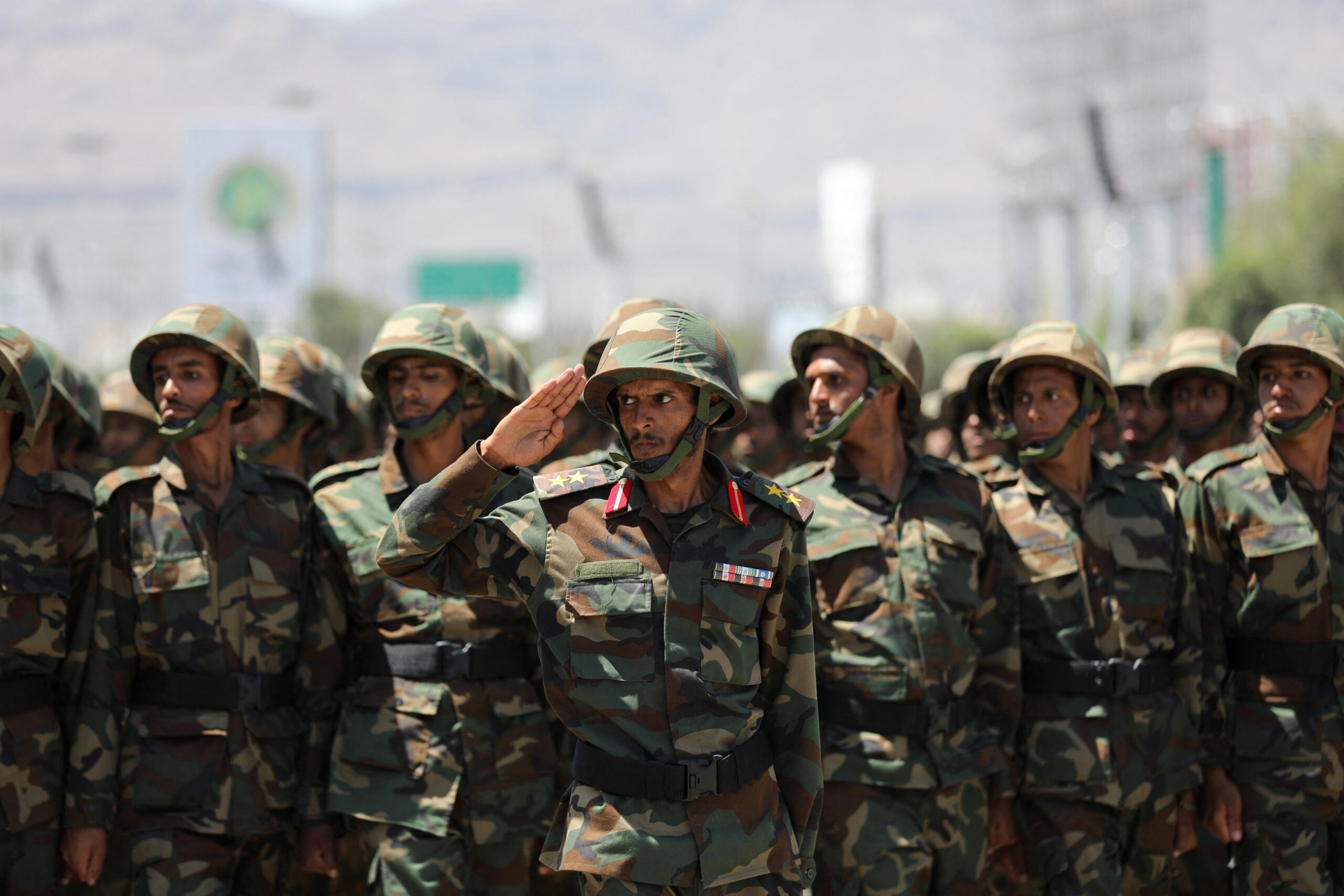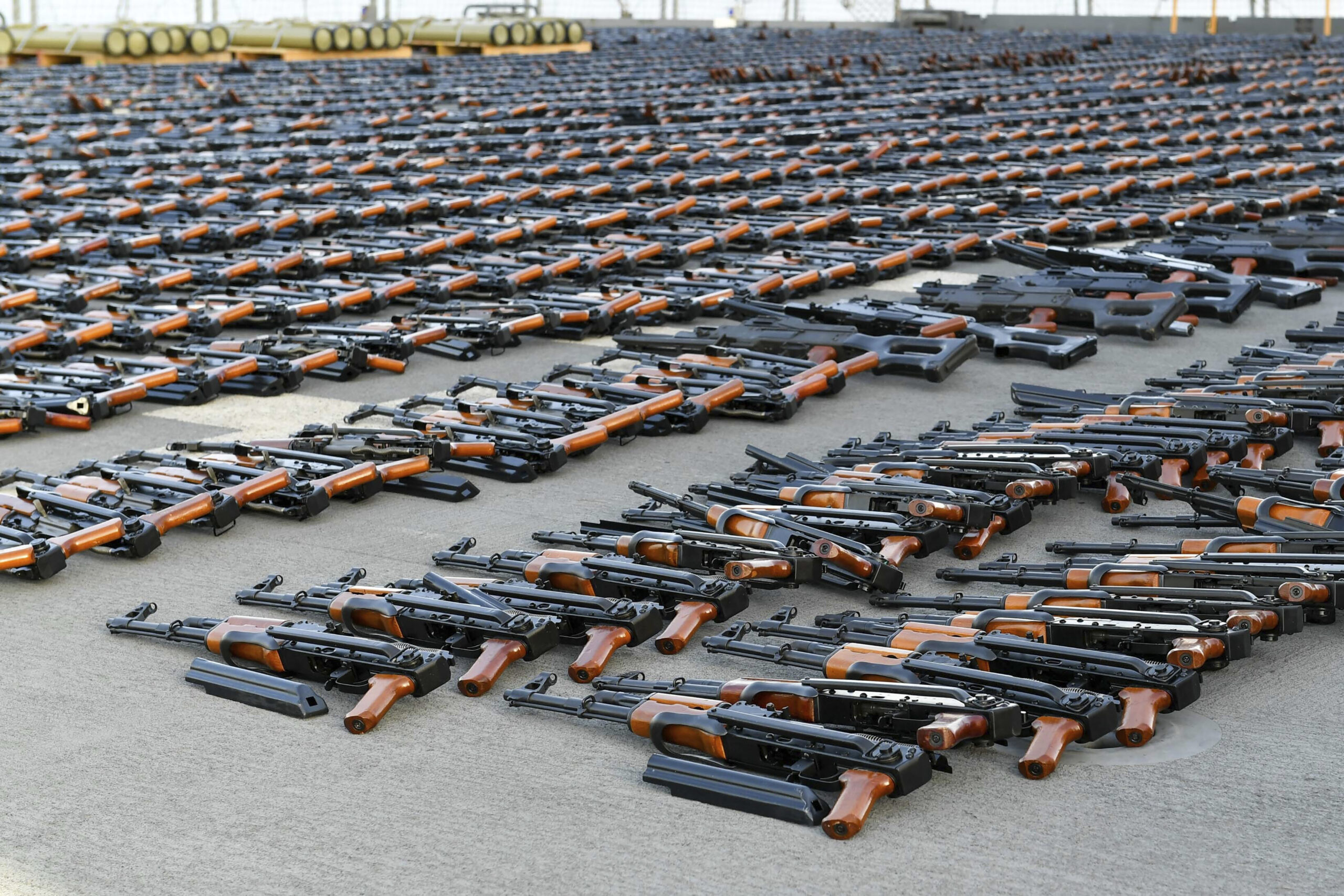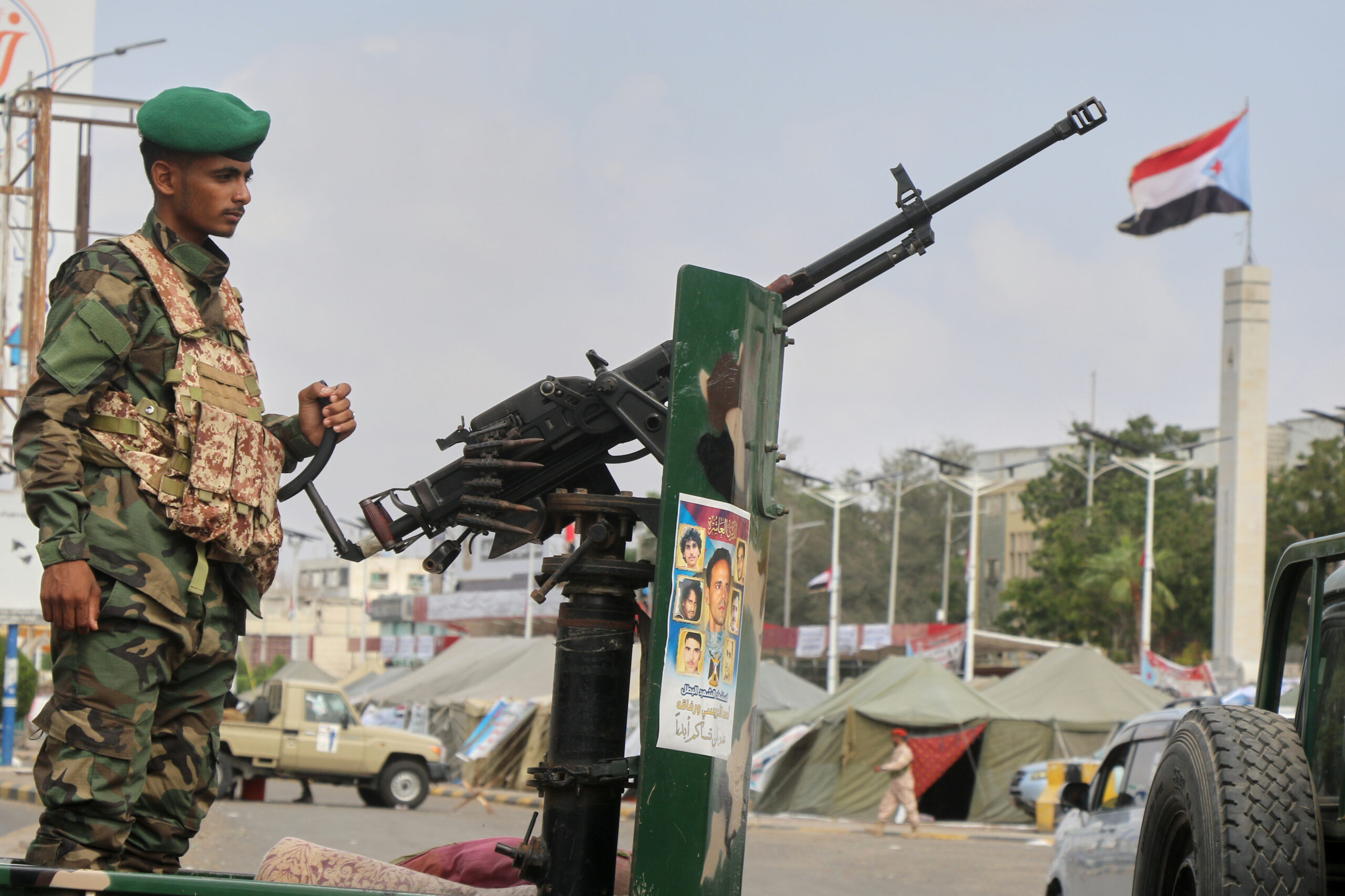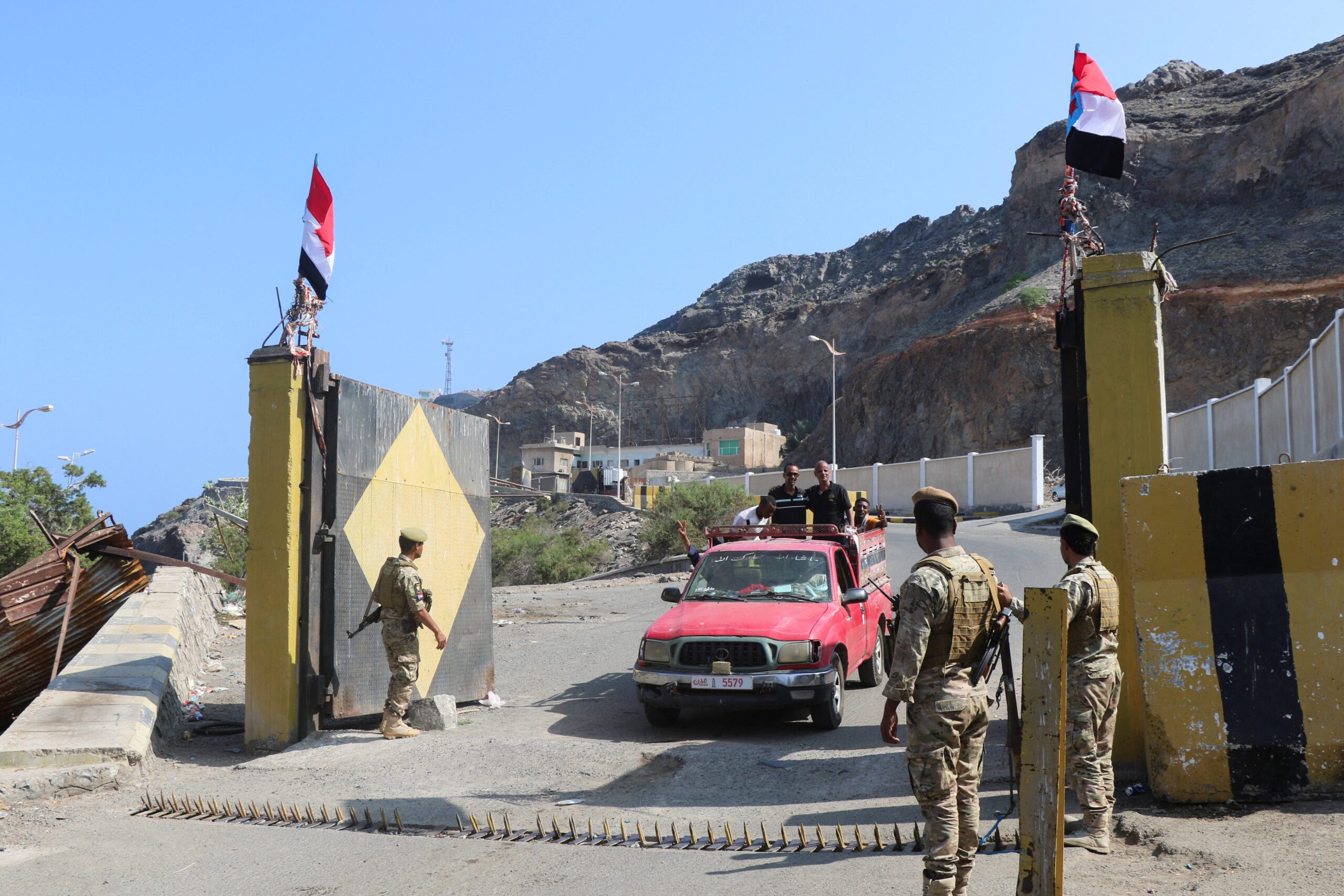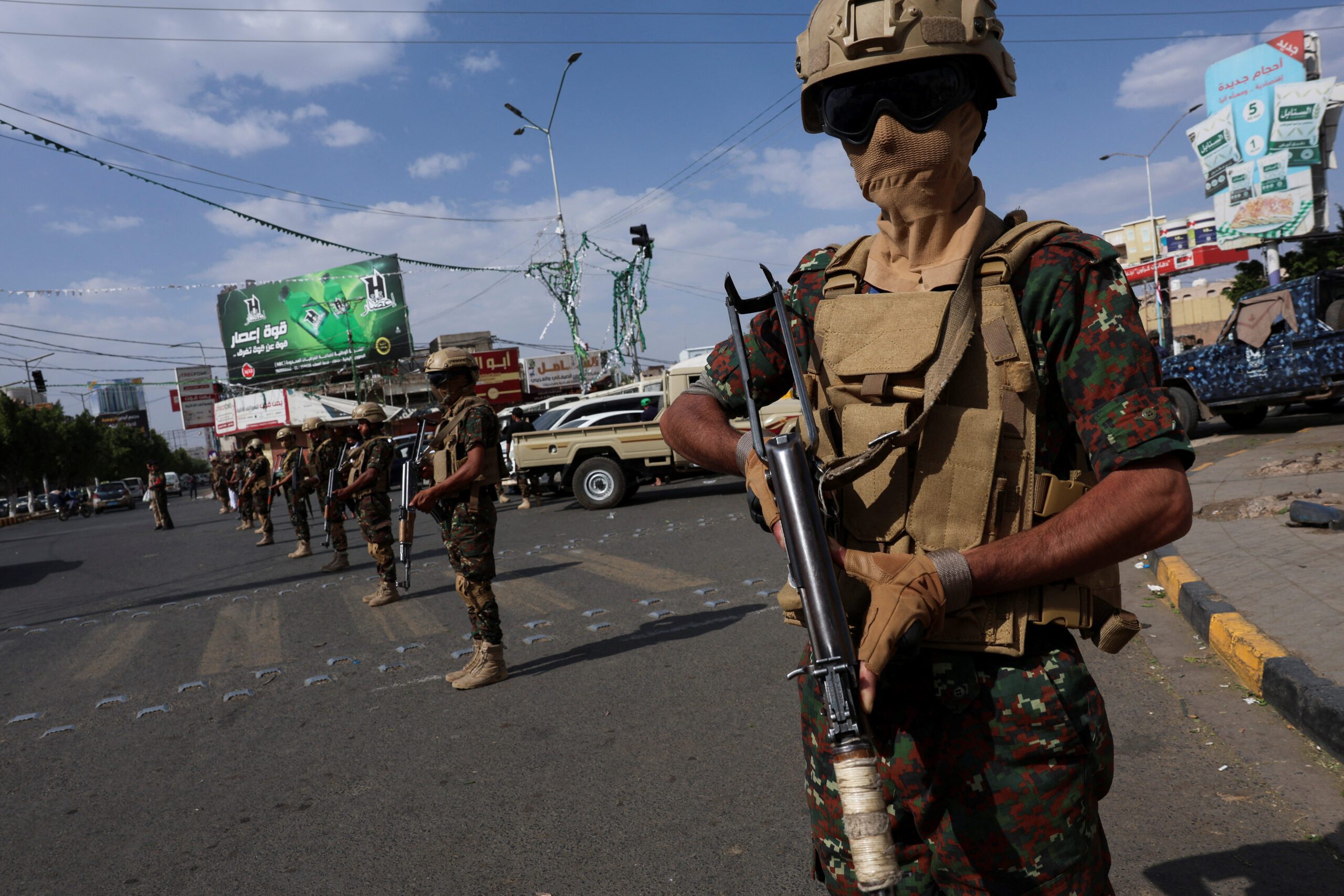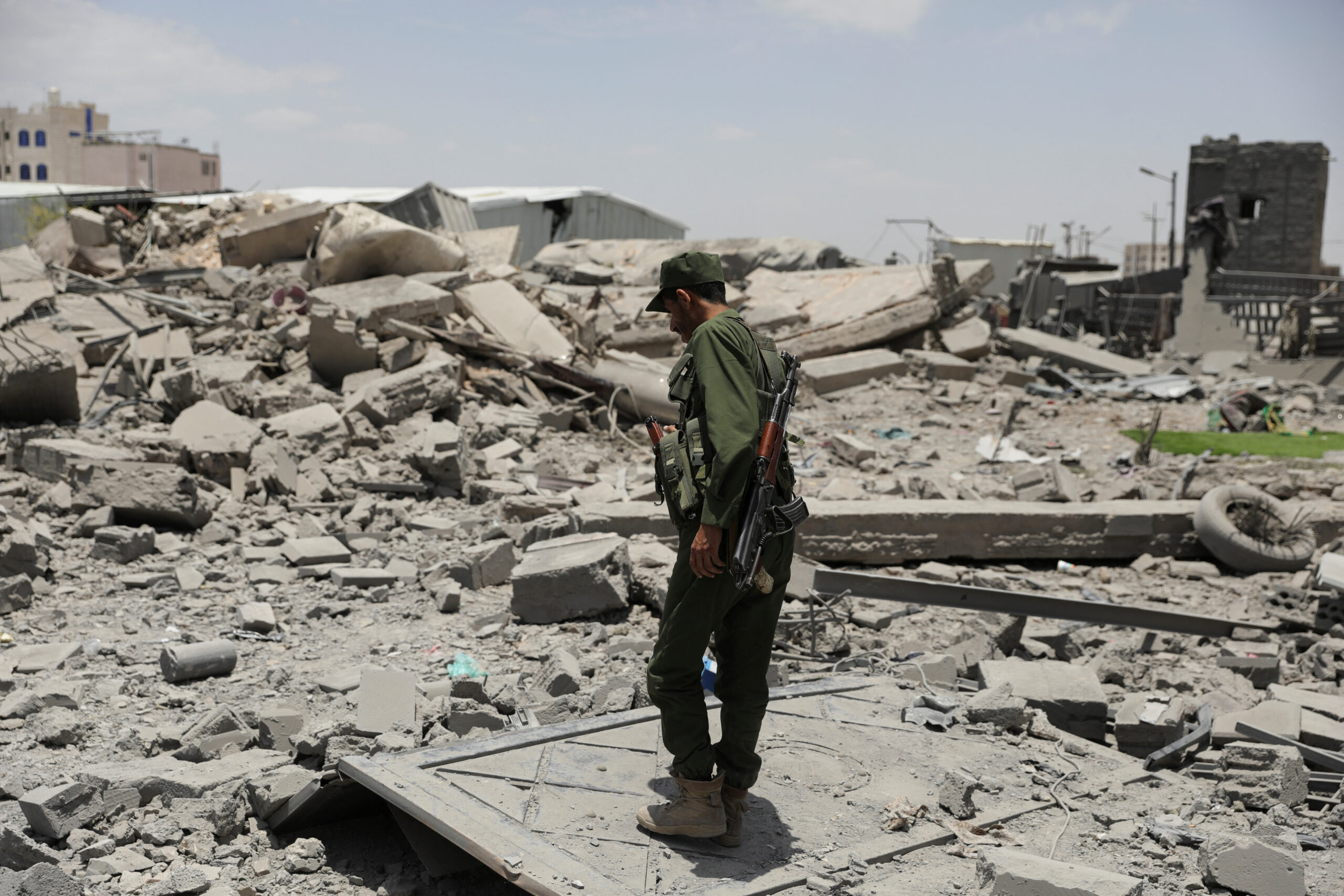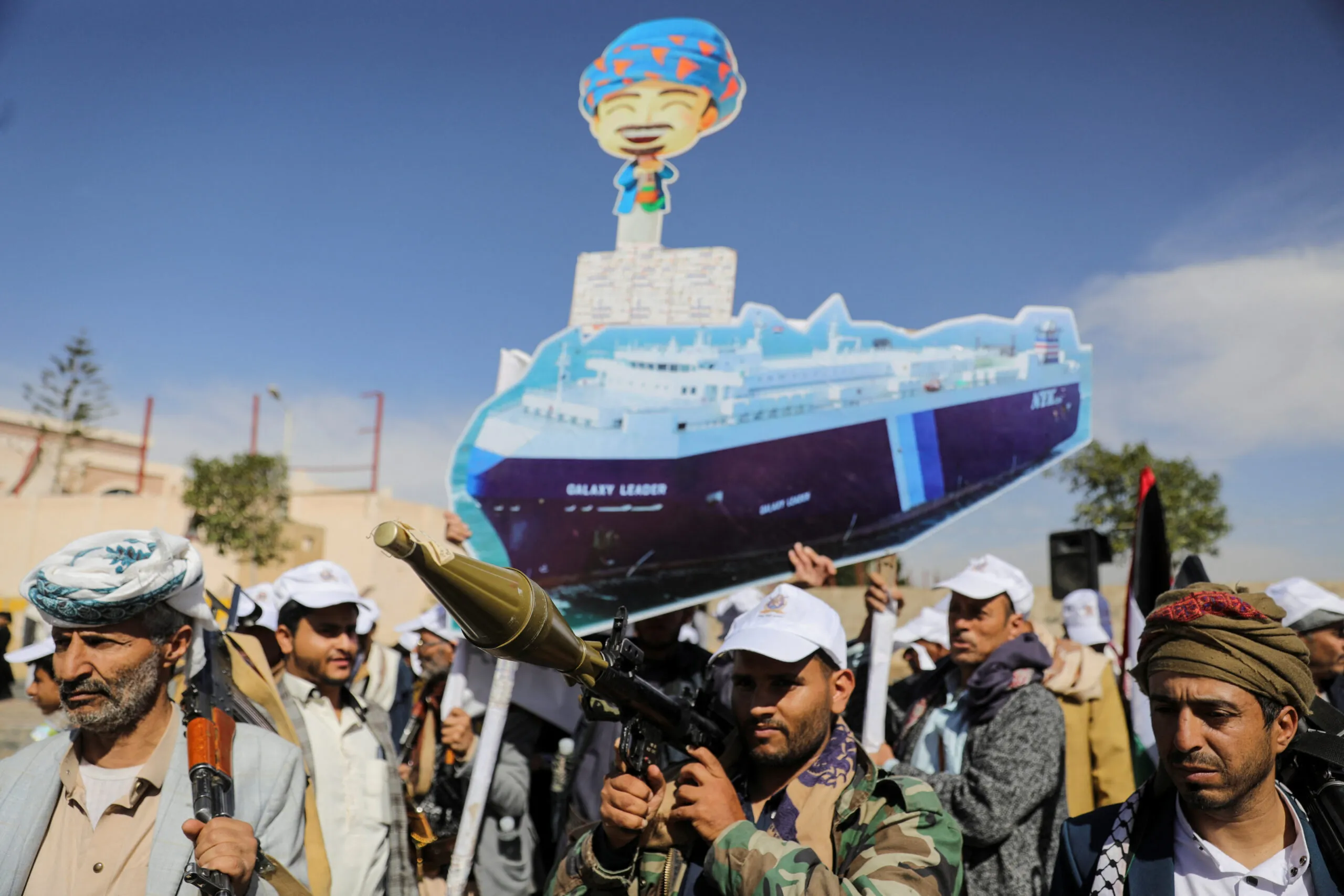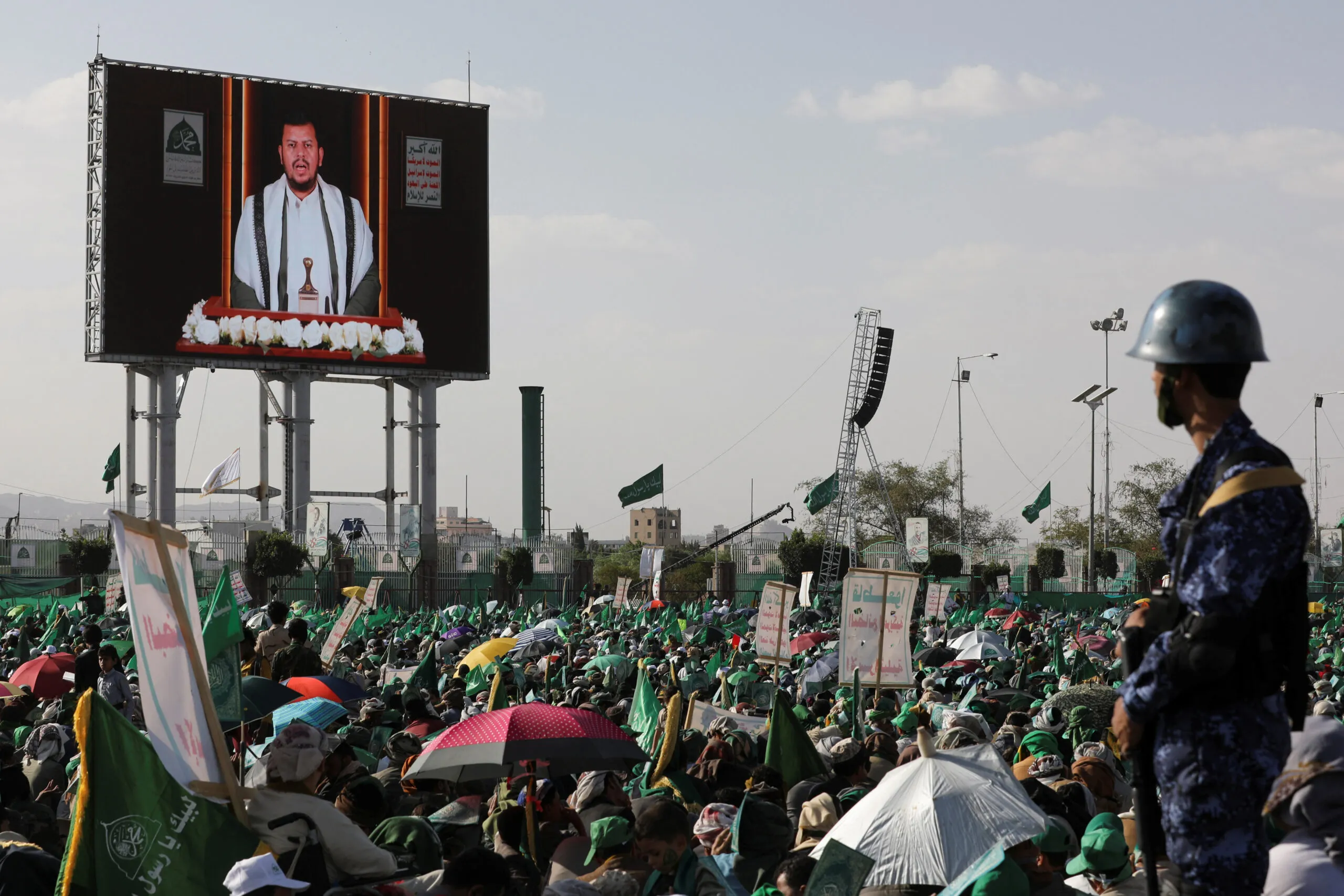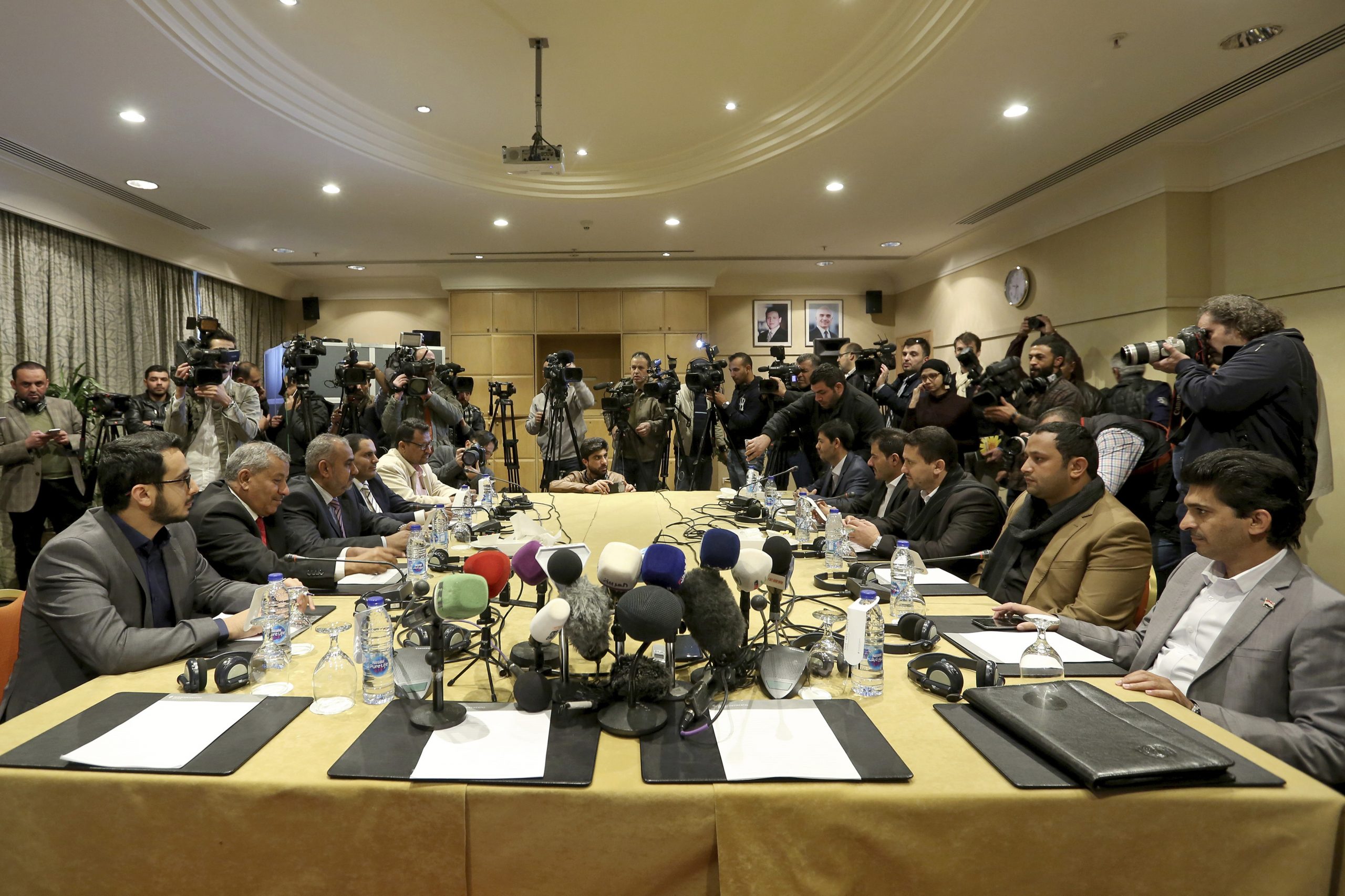The Houthi War on Israel
If the Houthis are attacking Israel, their local rivals will be less inclined to attack them.
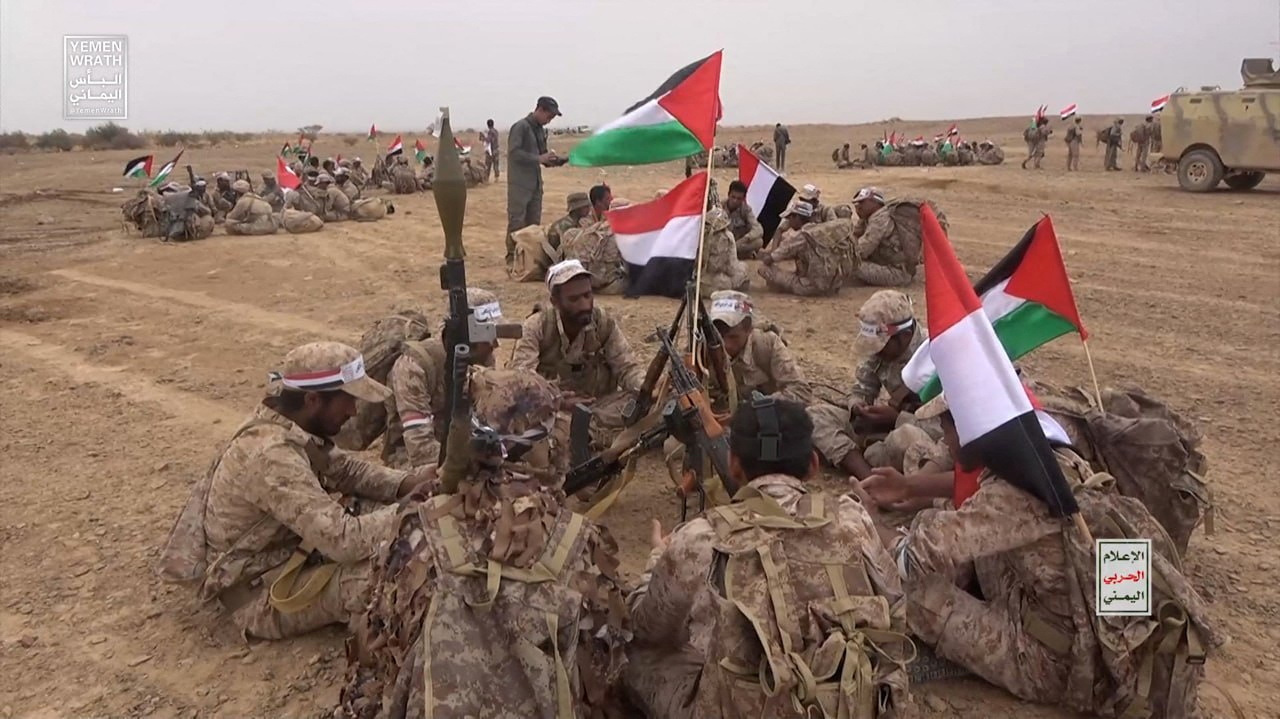
On at least three occasions, over the span of two weeks in late October, the Houthis launched missiles and drones at Israel. The first time, on October 19, the USS Carney, which was patrolling in the Red Sea, shot down cruise missiles and drones from Yemen. On October 28, Israel blamed the Houthis for an explosion in Taba, Egypt, near the Israeli border. On October 31, the Houthis launched their most ambitious attack to date, firing ballistic missiles, cruise missiles, and drones at Israel, which were shot down by fighter jets and Israel’s Arrow missile defense system. There have also been unconfirmed reports that Saudi Arabia may have shot down Houthi missiles aimed at Israel.
These are unlikely to be the last Houthi attacks aimed at Israel for the simple reason that the Houthis see firing missiles and drones at Israel as a high-reward, low-risk operation. The Houthis have two goals in conducting these attacks: one domestic and one international. First, the Houthis – whose slogan runs, in part: “death to Israel, curse on the Jews” – are hoping to offset growing signs of domestic discontent by rallying Yemenis under their rule around a common foe. Second, on the international side, the Houthis are looking to provide some political cover for Iran by carrying out attacks that the Islamic Republic is not willing to conduct at the moment.
Whether these missile and drone strikes are successful is not the primary point; whatever damage and destruction they cause is a bonus for the Houthis. These are political attacks not military ones. The Houthis do not have the proximity or weaponry to pose a true military threat to Israel. As Fabian Hinz, a research fellow for defense and military analysis at the International Institute for Strategic Studies, recently pointed out regarding Houthi military capabilities: “Their drones are pretty slow; their cruise missiles are faster, but still quite slow compared to other systems; and, their ballistic missiles do not appear very accurate. In addition, with the distance that you need to cover to reach Israel, it is simply very difficult to overwhelm existing air defenses.”
The Palestinian cause is one of the few issues that Yemenis of all political stripes can agree on. The Houthis know this and are looking to exploit it, much like they did with the Saudi-Emirati bombing campaign in the early years of the war. From 2015-17, the Houthis, who had just carried out a coup in Sanaa, cast themselves as the resistance against what they termed Saudi and Emirati aggression. The haphazard and often negligent bombing campaign helped rally Yemenis in the northern highlands to the Houthi cause, and even those who didn’t explicitly back the Houthis were willing to give the group a pass in the face of Saudi strikes.
That sentiment, however, has waned as the war has dragged on and Saudi and Emirate airstrikes have largely dried up. Now there are growing signs of frustration and discontent with Houthi rule in the north, particularly as the group is taking steps to ensure its dominance over tribes in the highlands and appears to be looking for ways to sideline its one-time partner, the General People’s Congress.
The Houthis view the war between Israel and Hamas as an opportunity to mute some of this domestic criticism. If they are attacking Israel, their local rivals will be less inclined to attack them.
Similarly, on the international front, the Houthis see strikes on Israel as cover for Iran, which has provided many of the missile components that the Houthis are now firing at Israel. Iran, much like Hassan Nasrallah and Hezbollah, has given rhetorical support to Hamas and encouragement to its proxies throughout the region but appears to want to avoid a direct war with Israel. The reasons are obvious. Israel has shown that it will respond militarily to escalation by either Iran or Hezbollah, a message the United States has emphasized in recent days. But the playbook is less clear when it comes to the Houthis.
Israel does not have a history of targeting the Houthis. Even if it wanted to retaliate, the number of targets in Yemen are, after nearly a decade of war, much more limited than in Iran or Lebanon. The only time the United States has directly targeted the Houthis came in 2016, when the Houthis fired missiles at U.S. ships in the Red Sea, and the United States responded by destroying three Houthi-controlled radar sites.
The Houthis, however, do have a history of providing plausible deniability for Iran. For instance, in 2019, the Houthis rushed to claim responsibility for attacks on Saudi oil facilities in Abqaiq and Khurais. Although the United States later determined that Iran was behind the attacks, the Houthis’ initial claim muddied the water at a key point, introducing doubts in the days immediately following the attacks. By the time the United States was absolutely certain that Iran was to blame, the window of opportunity for retaliatory action was largely closed.
Even if Israel or the United States were to identify and strike Houthi military targets in Yemen, it is unlikely the damage would be significant enough to deter the group and such strikes may backfire, strengthening the Houthis’ hand domestically. This is the rather simple calculation that the Houthis are making when it comes to striking Israel: Any attacks on Israel will benefit the group domestically, aid Iran internationally, and, if Israel or the United States does respond, the Houthis will benefit from the outpouring of local anger.
The views represented herein are the author's or speaker's own and do not necessarily reflect the views of AGSI, its staff, or its board of directors.

